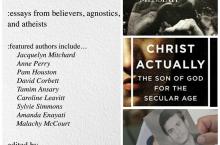
Sojourners Magazine: March 2015
One of the barriers to a just peace in the Middle East has been the one-sided stance of some evangelical Christians in the United States. Many conservative Christians have been uncritical of even the most repressive Israeli policies and political opponents of a responsible two-state solution. But this seems to be changing.
Ryan Rodrick Beiler has covered the Israeli-Palestinian conflict for more than a decade—including a four-year assignment in Palestine with a humanitarian organization—and has discovered seven reasons why many U.S. evangelicals are having a change of heart. For one, they’ve started to listen to the voices of Palestinian Christians and are rethinking the flawed theological underpinnings of a mindset that links the “chosen people” of God exclusively with the modern nation-state of Israel. Young evangelicals in particular are becoming more aware of the injustices that pervade Israel’s relationship with Palestinians.
A traditional evangelical rationalization for conflict in Palestine has been that there will never be peace in the Middle East until Jesus comes again. Now some are saying that instead of waiting for divine intervention, the faithful response is to get active in the pursuit of a just peace for all God’s children in the region.
Also in this issue, Erin Tocknell writes that when pastors and seminary students worked for civil rights in 1964 Nashville, their harshest critics were often their own church congregations. Gail Taylor’s long-term commitment to Washington, D.C.’s inner city took on an unexpected twist after volunteering at a farm in Maryland. She planted what has turned into a two-acre farm in the middle of the nation’s capital, a place much in need of fertilization. And finally, we introduce a man who we imagine will be the “new kid on the block” for many readers: 102-year-old Arturo Paoli, a Catholic priest and the most important economist you’ve never heard of.
















